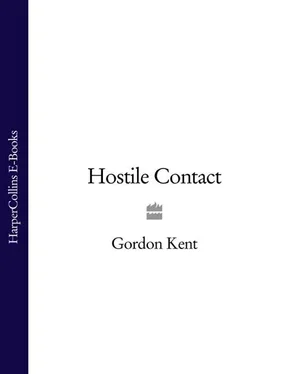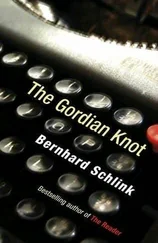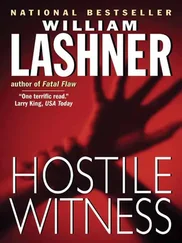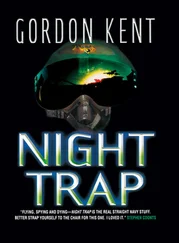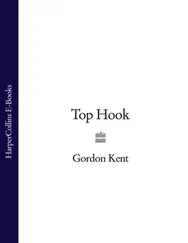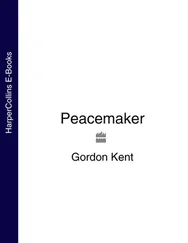And, Piat was thinking, he was himself in deep shit with the people who had sent him to Jakarta in the first place. What would he tell Suter and Helmer?
Well, he could tell them that Craik had done it. Some kind of personal thing. Maybe something snapped, he just—
Bull shit.
He couldn’t help thinking that what it reminded him of was the Watergate break-in. The Gang Who Couldn’t Shoot Straight. Jesus.
He went through it step-by-step. He had put somebody to check at the cannon, and a guy had come and had left the mark, only it hadn’t been Dukas, it had been Craik, which Piat hadn’t known until too late. ( First mistake. ) Then, this morning, they’d been at the meeting place, just as they had planned, and the same guy, Craik, had showed up there. Okay. Ho had been ready with the camera inside the Orchid House, too, or so Piat had thought, except that Bobby hadn’t got the film to him afterward ( second mistake ), meaning that to date there were no good photos of Craik inside, actually meeting with Bobby Li, which was the object of the whole operation. That had been the object, anyway, back before he had got enraged-drunk and had decided to shoot the sonofabitch—to get a photo of Dukas or Craik with what would look like a Chinese agent, which was what Bobby Li was meant to look like. But somebody had started shooting, and now he had no photos at all. Zip.
How was he to know that a bunch of people— Chinese —would fucking start shooting ?
The thought of it made Piat scowl into the humid heat: he had screwed up—forget the others, he was talking to himself about good tradecraft—he had screwed up, and he was ashamed. He had let the booze do his thinking for him, the booze and his loyalty to George Shreed, and he hadn’t been on top of things and they’d gone to hell.
But why?
It was really a double screwup: first, he hadn’t made sure himself that somebody competent would be taking the photos inside the Orchid House. In fact, he should have been on the camera himself and not dicked around with the fucking gun. And, second, he’d somehow overlooked the possibility that a third party would read the mark on the cannon and know that it signaled a meeting in the Orchid House—somebody Chinese, as it turned out. An idea zinged around his brain: we set up somebody to fake a meeting with a fake Chinese, and real Chinese show up. How the fuck did the Chinese know?
Something ugly sucked at his brain. Suspicion.
George Shreed had been accused of selling out to the Chinese. If he’d given the Chinese the comm plan—
He couldn’t let himself be sucked toward that. Any direction but that. Think of something else.
He’d lifted this old, dead comm plan out of the Canceled file and had laid it on Dukas because it was dead, because nobody else could know about it, because it had been Shreed’s creation and therefore beautifully ironic—Shreed striking back from the grave—and therefore it was a safe hunk of bait to lure Dukas into a trap. But somehow the Chinese had known about it and had shown up and had started shooting.
Part of his brain kept picking at the problem of how they could have known, and it was saying, People know about comm plans because they’ve either stolen them or been given them, and, because this was a George Shreed comm plan —But another part of his brain, the part that loved the late George Shreed, was saying, Don’t go there.
Piat sipped and admitted to himself that he wasn’t going to tell Suter and Helmer the truth. Nothing had happened in the Orchid House, he’d say; he hadn’t tried to kill Craik and failed. There hadn’t been any Chinese.
Think about Bobby Li , he told himself. Where the hell is he?
He changed taxis and directed the driver out to an old temple that stood on the edge of a colossal industrial park that was once going to make somebody fantastically rich and that had gone belly-up like the rest of Indonesia in the nineties. Nature was vengeful in Indonesia: give it a chance to take something back, and Nature moved fast. The industrial park looked now like a Mayan ruin, with small trees growing out of windows, and wild pigs running around the decaying roads.
Across the road from the old temple was a cookshed. One old woman had a fire and a pot and a “cooler” full of water with cans of soda in it. You could get a really cheap lunch there, with a case of the shits thrown in for nothing. It was his and Bobby’s last-stand, desperation, no-fallback dead drop.
“Package for Mister Brown?” he said. He held up an American five.
“Ten dolla.” Prices had gone up.
He handed over a ten and, wonder of wonders, she fished out a brown envelope with a bulge in it. Inside was a plastic canister with a roll of film. That little sonofabitch! He took back his doubts about Bobby.
A piece of paper was in the canister with the film. One word had been scrawled on it: Scared.
It made Piat smile.
He wrapped three American hundreds into a tight roll and stuffed them into the canister and put the canister back into the envelope with the piece of paper, on which he had written, “I’ll be back.”
“Give to Mister Black when he comes, okay, Mama?”
“Ten dolla.”
Piat headed for the airport.
Dar es Salaam.
Two hours later than he had demanded, as Lao was smoking and staring at the wall, his stomach seething, the photos came through from Jakarta. They were not particularly clear, but one was clear enough for him to see that Bobby Li had been close to both Qiu, the dead man, and the Caucasian. Too close. Had he spoiled the meeting?
Lao tried to see the logic of such a thing. He had sent a case officer to Jakarta to run things, and he had got killed; and he had sent Chen’s old agent, Li, to identify Chen or Shreed if either showed at the meeting, and—and Li had then intruded on the meeting that was detailed in American Go. Doing so was far beyond the responsibility of an agent. It was a kind of hubris. Had Li thought that Lao wouldn’t know?
Or had he had some other, more important agenda? Had he wanted to eavesdrop? But why?
Li’s action suggested another set of orders, because Li, in Lao’s experience, was an insecure man who always needed orders: the only things he did on his own were acts of desperation. So, who else might be giving him orders? The question chilled Lao because it came from the ice of a case officer’s worst fear—that his agent was a double. This led to a second, colder question: double agent for whom? He couldn’t forget that Li had been Chen’s agent.
He shook his head. He didn’t believe in the game of mirrors. He ground out his cigarette and called in Jiang, an aging captain with a good bureaucrat’s sense of how to get things done. Lao brought up on the computer screen a photograph of the Westerner leaving the Orchid House. “I want to know who that Westerner is. He was in Jakarta two hours ago: check the manifests of flights in and out for five days back and the outgoing from now on; I have a suspicion he will leave Jakarta soon. Check with embassy security in Jakarta; one of their people followed an American, maybe this man, to a hotel. Get a name if you can. Then check the hotels for Americans who were there yesterday and today. Ask if they have been asking for directions to Fatahillah Square and the Orchid House in the minipark.” He squinted at the screen. “This man was probably with somebody else—up to four others, maybe. A counter-surveillance team. Maybe traveling together, but not necessarily.” He lit another cigarette. “Then get on to the Jakarta police and find out if they have any reports on an incident at the Orchid House this morning.”
Читать дальше
